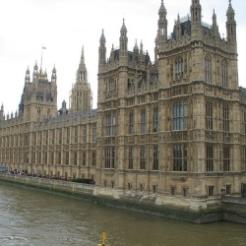Yesterday’s Public Administration Select Committee meeting on the work of the Charity Commission provided some insights into the topics that the forthcoming ministerial review of the Charities Act might address.
Committee members cross-examined Commission chair Dame Suzi Leather and chief executive Sam Younger on a number of issues during the one-hour-and-40-minute session, and the impending review of the Act was mentioned several times. Several members of the Committee intimated that they would be keen for the review to re-examine various aspects of the Charity Commission’s work.
Some of the areas that seem ripe for review include:
The Commission’s funding arrangements
Commission chair Dame Suzi Leather suggested that the Commission’s funding model should be examined in the review. The Commission cannot introduce a levy on the sector without new primary legislation and it wouldn’t be sensible to charge charities for filing their annual accounts, because that could incentivise them not to file, she said. The “most attractive” funding model is a “unit cost” on charities with income above a certain threshold, possibly £10,000 a year. However, Dame Suzi admitted this was not a popular idea in the sector.
Another option, suggested by Committee chair Bernard Jenkin, is a charge on charities with large trading arms. Dame Suzi said there were “no easy solutions” but added “many regulators are funded by the sectors they regulate”.
Campaigning and political activity by charities
The debate around Atlantic Bridge highlighted the difficulty the Commission sometimes faces in determining whether charities stray across the fine line into political campaigning territory. Conservative MPs said the Commission was too lenient on left-leaving think tanks and harsh on right-leaning ones, while Labour MPs felt it didn’t come down hard enough on Atlantic Bridge. Conservative MP Charlie Elphicke also queried why Shelter, “a classic example of a charity that spends most of its income on campaigning” could be a charity when a political think tank could not.
Sam Younger admitted it is a subjective process, though decisions are based on case law. “It is a very thin line, and worth discussing in the context of the review of the Act,” he said. Robert Halfon MP (Conservative) suggested it “might be better if Parliament set the guidelines so everybody sees it is fair”.
Sanctions for trustees that breach charity law
Labour MP Paul Flynn made it clear that he felt the Atlantic Bridge trustees had “got off scot-free” and that the charity’s removal from the Register was not nearly a punitive enough redress for the “dishonest” behaviour of its trustees. “Similar charities now know that they can get away with bad behaviour,” he said.
But Dame Suzi said that the point he was making seemed to be about the powers available to the Commission “and that is for the review of the Act rather than for us to comment on now”.
Commission oversight of charity expenditure
Charlie Elphicke MP raised the issue of charities that pay their staff high salaries and have high administrative costs, to which Sam Younger responded that generally, scrutiny of charities’ accounts and monitoring their efficiency was not a matter for the Commission, but for donors. Elphicke said: “So as long as you are transparent you can trough, is that the message?”
Later he asked the Commission witnesses: “When it comes to campaigning, advertising, how much people are paid, and admin costs, you do not say that is your remit?” When Younger said “no”, Elphicke added: “As a matter of public policy we may disagree.”
Additional powers for the Commission
Asked whether the Commission wanted more powers in any areas of its work, Dame Suzi said: “I don’t think there are a lot of areas.
“We are the closest you come to a regulator of civil society and we don’t want huge draconian powers,” she said. “We already have quite considerable powers under statutory inquiries and it is really how you exercise your discretion that is key.”
In fact the Commission wanted to transfer the powers it has around the regulation of Common Investment Funds over to the Financial Services Authority, she added.
Younger said there are two areas that will be addressed in the review – the Commission’s powers in relation to disqualification of trustees and the swapping of information with other regulators and agencies. But he added: “But it’s important to remember that we are there to regulate the governance of charities - we are not a prosecutor.”
No news on Charities Act reviewer
There is still no word from the government as to who will lead the review of the 2006 Act. Minister for civil society Nick Hurd told Parliament in May that a person must be appointed before 8 November to carry out the review, and that it is likely to take between six and nine months.









